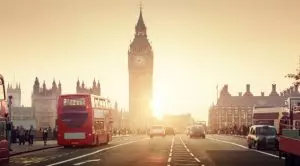 The UK gambling regulatory body is set to ask a court to enact its decision to award the fourth 10-year National Lottery licence to Allwyn in a move which, according to some experts, would risk reducing the money for good causes by up to £800 million.
The UK gambling regulatory body is set to ask a court to enact its decision to award the fourth 10-year National Lottery licence to Allwyn in a move which, according to some experts, would risk reducing the money for good causes by up to £800 million.
As reported by Casino Guardian, in mid-March, the UK Gambling Commission (UKGC) announced that the current holder of the National Lottery operating permit – Camelot Group – will lose its licence and the permit will go to the Czech Republic’s gambling and lottery company Allwyn. The move of the country’s gambling watchdog triggered the decision of the incumbent Camelot Group and the British media tycoon Richard Desmond to immediately file a lawsuit against the announcement and take the UKGC to court over the lucrative licence.
The losing bidders in the competition are set to take their case to the country’s high court in October 2022 – a move that would bar the gambling regulator from proceeding with the preparations to actually transfer the operating permit for the National Lottery to Allwyn.
Reportedly, on May 11th, the legal representatives of the UKGC are set to ask a high court judge to eliminate the temporary block that does not allow the regulator to sign the so-called “enabling agreement” with its preferred candidate, Allwyn. The watchdog’s lawyers claim that such a block risks further delay of the licence transition and the future payments to good causes.
Losing Bidders Intend to Proceed with Legal Action over Allwyn’s Choice for National Lottery Operator
 According to a source close to the situation, the Gambling Commission’s hurry to move forward with the planned transfer of the operating licence to Allwyn is the one that actually puts the payments to good causes at risk. According to people with knowledge of the matter, if successful, the gambling regulator’s request would make it almost impossible to reverse the operating permit’s transfer to Allwyn, which is currently one of the largest lottery operators in Europe.
According to a source close to the situation, the Gambling Commission’s hurry to move forward with the planned transfer of the operating licence to Allwyn is the one that actually puts the payments to good causes at risk. According to people with knowledge of the matter, if successful, the gambling regulator’s request would make it almost impossible to reverse the operating permit’s transfer to Allwyn, which is currently one of the largest lottery operators in Europe.
Although the UKGC intends to make the request, Camelot Group, its technology supplier International Game Technology (IGT) and British publisher Richard Desmond would not let go of the legal challenges and would effectively be suing the gambling regulatory body for damages, rather than for the watchdog’s decision to be overturned.
The losing bidders claim that the combined damages could cost up to £800 million to the Commission, including costs incurred during the lengthy bidding process. Furthermore, the current holder of the National Lottery’s operating licence would seek compensation for income that it would have generated as a result of running the lottery in the period from 2024 to 2034.
As cited by The Guardian, the source familiar with the matter said that the UKGC was essentially gambling with money meant to fund good causes. They also said that extending the existing licence of Camelot for 6 more months to allow the legal action to go ahead would be the wiser thing to do. A temporary extension of Camelot’s licence has already been granted by the Gambling Commission when Sir Richard Branson challenged the regulator’s decision to award the company with the second National Lottery licence in 2000.
If the legal challenge filed by Camelot Group is successful, the company would continue to operate the National Lottery and the UKGC would not have to pay any damages. If the legal challenge fails, the regulator’s decision to hand down the operating permit to Allwyn would remain intact.
- Author


